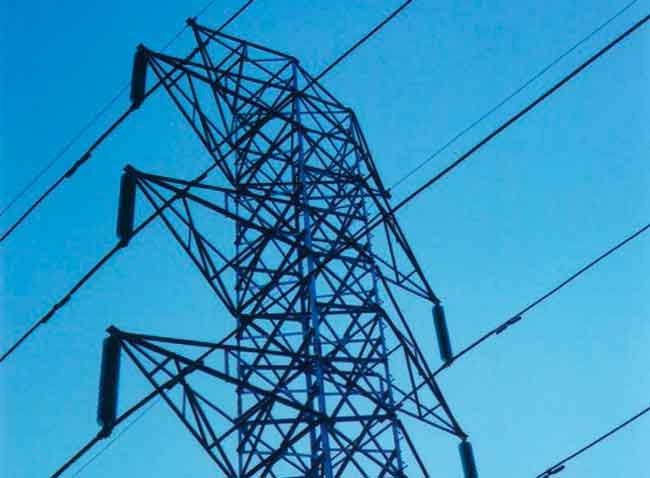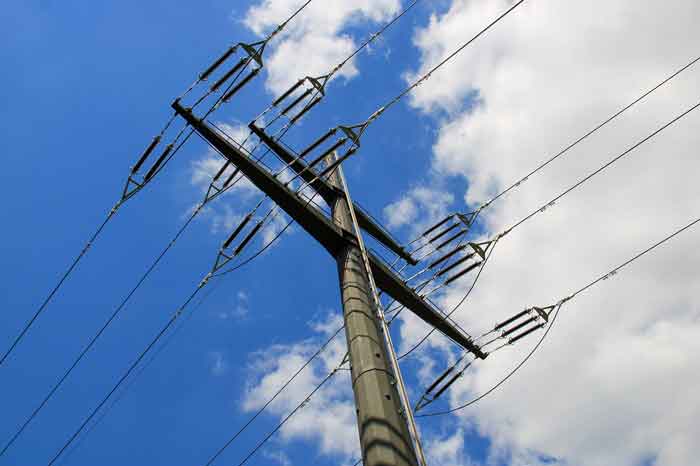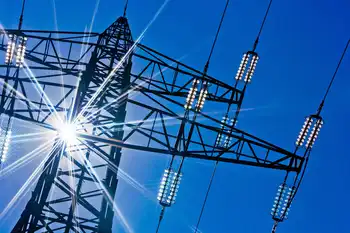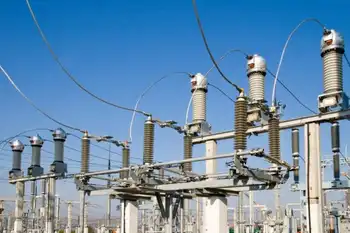Ukraine Nuclear Plant Ownership Proposal outlines U.S. management of Ukrainian reactors amid the Russia-Ukraine war, citing nuclear safety, energy security, and IAEA oversight; Kyiv rejects ownership transfer, especially regarding Zaporizhzhia under Russian control.
Key Points
U.S. control of Ukraine's nuclear plants for safety; Kyiv rejects transfer, citing sovereignty risks at Zaporizhzhia.
✅ U.S. proposal to manage Ukraine's reactors amid war
✅ Kyiv refuses ownership transfer; open to investment
✅ Zaporizhzhia under Russian control raises safety risks
In the midst of the ongoing conflict between Russia and Ukraine, U.S. President Donald Trump has proposed a controversial idea: Ukraine should give its nuclear power plants to the United States for safekeeping and management. This suggestion came during a phone call with Ukrainian President Volodymyr Zelenskyy, wherein Trump expressed the belief that American ownership of these nuclear plants could offer them the best protection amid the ongoing war. But Kyiv, while open to foreign support, has firmly rejected the idea of transferring ownership, especially as the Zaporizhzhia nuclear plant remains under Russian occupation.
Ukraine’s nuclear energy infrastructure has always been a vital component of its power generation. Before the war, the country’s four nuclear plants supplied nearly half of its electricity. As Russia's military forces target Ukraine's energy infrastructure, including power plants and coal mines, international watchdogs like the IAEA have warned of nuclear risks as these nuclear facilities have become crucial to maintaining the nation’s energy stability. The Zaporizhzhia plant, in particular, has attracted international concern due to its size and the ongoing threat of a potential nuclear disaster.
Trump’s Proposal and Ukraine’s Response
Trump’s proposal of U.S. ownership came as a response to the ongoing threats posed by Russia’s occupation of the Zaporizhzhia plant. Trump argued that the U.S., with its expertise in running nuclear power plants, could safeguard these facilities from further damage and potential nuclear accidents. However, Zelenskyy quickly clarified that the discussion was only focused on the Zaporizhzhia plant, which is currently under Russian control. The Ukrainian president emphasized that Kyiv would not entertain the idea of permanently transferring ownership of its nuclear plants, even though they would welcome investment in their restoration and modernization, particularly after the war.
The Zaporizhzhia nuclear plant has been a focal point of geopolitical tensions since Russia's occupation in 2022. Despite being in "cold shutdown" to prevent further risk of explosions, the facility remains a major concern due to its potential to cause a nuclear disaster. Ukrainian officials, along with international observers, have raised alarm about the safety risks posed by the plant, including mines at Zaporizhzhia reported by UN watchdogs, which is situated in a war zone and under the control of Russian forces who are reportedly neglecting proper safety protocols.
The Fear of a Nuclear Provocation
Ukrainians have expressed concerns that Trump’s proposal could embolden Russia to escalate tensions further, even as a potential agreement on power-plant attacks has been discussed by some parties. Some fear that any attempt to reclaim the plant by Ukraine could trigger a Russian provocation, including a deliberate attack on the plant, which would have catastrophic consequences for both Ukraine and the broader region. The analogy is drawn with the destruction of the Nova Kakhovka dam, which Ukraine accuses Russia of sabotaging, an act that severely disrupted water supplies to the Zaporizhzhia plant. Ukrainian military officials, including Ihor Romanenko, a former deputy head of Ukraine’s armed forces, warned that Trump’s suggestion might be an exploitation of Ukraine’s vulnerable position in the ongoing war.
Despite these fears, there are some voices within Ukraine, including former employees of the Zaporizhzhia plant, who believe that a deliberate attack by Russian forces is unlikely. They argue that the Russian military needs the plant in functioning condition for future negotiations, with Russia building new power lines to reactivate the site as part of that calculus, and any damage could reduce its value in such exchanges. However, the possibility of Russian negligence or mismanagement remains a significant risk.
The Strategic Role of Ukraine's Nuclear Plants
Ukraine's nuclear plants were a cornerstone of the country’s energy sector long before the conflict began. In recent years, as Ukraine lost access to coal resources in the Donbas region due to Russian occupation, nuclear power became even more vital, alongside a growing focus on wind power to improve resilience. The country’s reliance on these plants grew as Russia launched a sustained campaign to destroy Ukraine’s energy infrastructure, including attacks on nuclear power stations.
The Zaporizhzhia plant, in particular, holds strategic importance not only due to its size but also because of its location in southeastern Ukraine, an area that has been at the heart of the conflict. Despite being in Russian hands, the plant’s reactors have been safely shut down, reducing the immediate risk of a nuclear explosion. However, the plant’s future remains uncertain, as Russia’s long-term control over it could disrupt Ukraine’s energy security for years to come.
Wider Concerns About Aging Nuclear Infrastructure
Beyond the geopolitical tensions, there are broader concerns about the aging infrastructure of Ukraine's nuclear power plants. International watchdogs, including the environmentalist group Bankwatch, have criticized these facilities as “zombie reactors” due to their outdated designs and safety risks. Experts have called for Ukraine to decommission some of these reactors, fearing that they are increasingly unsafe, especially in the context of a war.
However, Ukrainian officials, including Petro Kotin, head of Energoatom (Ukraine's state-owned nuclear energy company), argue that these reactors are still functional and critical to Ukraine's energy needs. The ongoing conflict, however, complicates efforts to modernize and secure these facilities, which are increasingly vulnerable to both physical damage and potential nuclear hazards.
The Global Implications
Trump's suggestion to take control of Ukraine's nuclear power plants has raised significant concerns on the international stage. Some fear that such a move could set a dangerous precedent for nuclear security and sovereignty. Others see it as an opportunistic proposal that exploits Ukraine's wartime vulnerability.
While the future of Ukraine's nuclear plants remains uncertain, one thing is clear: these facilities are now at the center of a geopolitical struggle that could have far-reaching consequences for the energy security of Europe and the world. The safety of these plants and their role in Ukraine's energy future will remain a critical issue as the war continues and as Ukraine navigates its relations with both the U.S. and Russia, with the grid even having resumed electricity exports at times.
Related News












